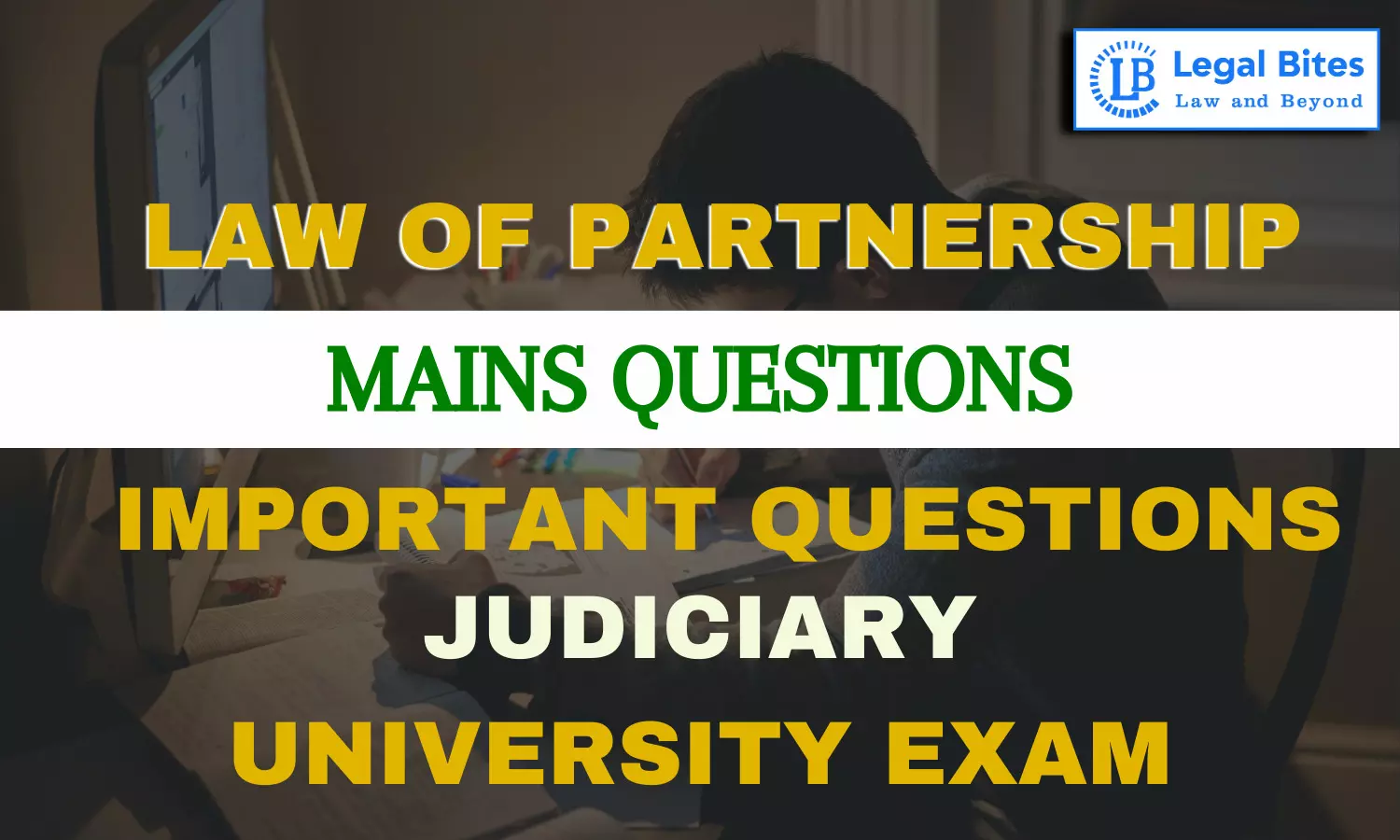Partner embraces the character of both that of a Principal and Agent. Comment, bringing out the scope of implied authority of a partner to bind a firm. One of the partners of a firm bribed..... Are other partners liable....
Find the answer to the mains question of the Law of Partnership only on Legal Bites.

Question: Partner embraces the character of both that of a Principal and Agent. Comment, bringing out the scope of implied authority of a partner to bind a firm. One of the partners of a firm bribed the clerk of a rival firm in order to get some confidential information. Are other partners of the firm liable for the act of the partner?Find the answer to the mains question of the Law of Partnership only on Legal Bites. [Partner embraces the character of both that of a Principal and...
Question: Partner embraces the character of both that of a Principal and Agent. Comment, bringing out the scope of implied authority of a partner to bind a firm. One of the partners of a firm bribed the clerk of a rival firm in order to get some confidential information. Are other partners of the firm liable for the act of the partner?
Find the answer to the mains question of the Law of Partnership only on Legal Bites. [Partner embraces the character of both that of a Principal and Agent. Comment, bringing out the scope of implied authority of a partner to bind a firm. One of the partners of a firm bribed the clerk of a rival firm in order to get some confidential information. Are other partners of the firm liable for the act of the partner?]
Answer
The statement that a partner embraces the character of both a Principal and Agent is accurate. In a Partnership, each partner acts as a Principal and an Agent simultaneously. This means that a partner has the authority to act on behalf of the firm, binding the firm and other partners through their actions, subject to certain limitations and conditions.
The implied authority of a partner to bind a firm refers to the authority that is reasonably necessary to carry on the ordinary business of the firm. Section 18 of the Indian Partnership Act, 1932, states that every partner is an agent of the firm and his other partners for the purpose of the business of the partnership. This implies that a partner has the implied authority to undertake activities that are usual or customary in the ordinary course of the partnership's business.
The scope of implied authority may vary depending on factors such as the nature of the business, the partnership agreement, and the usual practices in the relevant industry. However, some common examples of a partner's implied authority include:
- Entering into contracts and agreements on behalf of the firm.
- Buying and selling goods and services.
- Hiring and managing employees.
- Negotiating and entering into transactions with third parties.
- Representing the firm in legal and financial matters.
Now, regarding the situation where one of the partners bribed the clerk of a rival firm, it is essential to consider the concept of "wrongful acts" or acts outside the scope of implied authority. Bribing a clerk to obtain confidential information is generally considered a wrongful act and falls outside the scope of implied authority.
According to Section 10 of the Indian Partnership Act, 1932, a partner's authority to bind the firm does not extend to acts that are illegal, fraudulent, or outside the ordinary course of business. Therefore, the other partners may not be automatically liable for the act of the partner who engaged in bribery, as it is a wrongful act beyond the scope of implied authority.
However, it is crucial to examine the specific circumstances and any partnership agreements or arrangements in place to determine if the other partners had knowledge of or authorized the wrongful act. If the other partners had knowledge of or explicitly authorized the bribery, they may be held jointly and severally liable for the actions of the partner.

Mayank Shekhar
Mayank is an alumnus of the prestigious Faculty of Law, Delhi University. Under his leadership, Legal Bites has been researching and developing resources through blogging, educational resources, competitions, and seminars.
